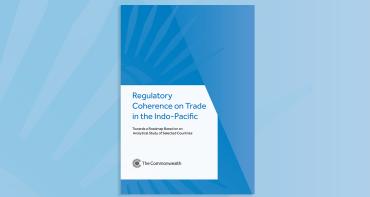The Commonwealth is helping Cameroon explore ways to increase the benefits of e-commerce and digital trade as a tool for achieving its national development plan.

The Commonwealth is helping Cameroon explore ways to increase the benefits of e-commerce and digital trade as a tool for achieving its national development plan.
Secretariat staff are helping with the design of a national e-commerce strategy and a review of the legal and regulatory framework for e-commerce within the country.
Last month more than 50 people from a range of government agencies and the private sector met in Yaoundé to review key issues for consideration in the draft frame work for the strategy and the legal and regulatory requirements for the country in relation to e-commerce.
Cameroon also plans to link up its e commerce strategy to other areas of strategic importance such as national trade policy and industrial development policy. This improved connectivity will enable the country to diversity its economy, create employment, reduce poverty and integrate into the multilateral trading system.
Opeyemi Abebe, the Commonwealth Trade lead on the project said, “Cameroon is the biggest market in the Central African region. This project will enable its government to put in place the requisite legal framework for e-commerce and identify the sectors within the regional value chain for small and medium-sized enterprises (SMEs) in Cameroon. It will lead to increased contribution of e-commerce to the national GDP and facilitate employment creation, as well as poverty reduction amongst the most vulnerable groups in the country.”
While e-commerce sales have dramatically increased in developed economies, they are still at their infancy in many developing countries. At present, e-commerce accounts for a growing percentage of global trade of goods and services and is predicted to increase exponentially given the digital revolution.
Achille Bassilekin, Secretary-General at the Ministry of Trade in Cameroon, said, “Building a sustainable e-commerce ecosystem remains a priority for the government of Cameroon to ensure that our private sector is able to derive an equitable share from the opportunities provided by global e-commerce.”
A small number of SMEs in African countries are currently engaged in e-commerce transactions exclusively for the supply of goods and services within their state borders. However, these SMEs face significant challenges when they attempt to expand their trade outside of their countries due to limitations on the local banking systems.
Cameroon is currently making significant progress in the development of internet-based solutions, most notably the establishment of the ‘Silicon Mountain’ in Buea in the South West region of the country. This innovation hub incubates Cameroon’s young tech start-ups and growing community of developers and designers, contributing millions of dollars to the nation’s economy.



